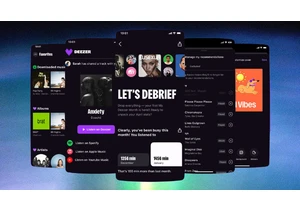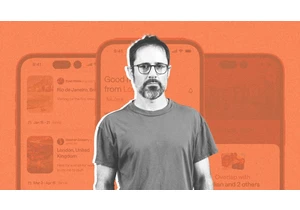The tech world is gearing up for the next digital revolution. Buzzwords are everywhere: Crypto, NFTs, Web3. Tech icons from Mark Zuckerberg to Jack Dorsey have renamed their companies in their enthusiasm for the metaverse and blockchain technologies. In reaction to the rise of private cryptocurrencies, central banks are exploring whether to issue their own digital currencies, and policymakers are contemplating how to regulate private stablecoins (cryptocurrencies pegged to fiat money like the U.S. dollar) because they function like savings deposits. To its boosters, the metaverse—a network of virtual reality worlds—is a utopian future vision of the internet. Web3 is the building block, billed as a more democratized internet than our current one (Web 2.0) and underpinned by blockchain innovations such as smart contracts and the ability to form self-governing, decentralized autonomous organizations (DAOs). Skeptics are not so sure whether any of this is feasible, transformative, or even beneficial. False dichotomies
As I see it, the future will not be either/or. It will not be analog vs. digital, not centralized vs. decentralized finance, not central-bank issued vs. private currency. Our future work and financial lives will likely unfold in a combination of all of the above—in a brave new hybrid world with new opportunities for economic participation and ownership, but also new challenges of exclusion and to privacy. It is up to innovators, entrepreneurs, investors, and policymakers to make sure we collectively capture as much of the new upside potential, while minimizing the new risks. It’s not hard to imagine how our economic lives might rapidly evolve with the new technological possibilities. Picture a future in which an aspiring Nigerian freelance journalist rents a flat in Lagos, works from home, buys groceries from the corner store, and coffee from the café downstairs. She will continue to pay for many of these daily goods in domestic naira. But she will also use a private stablecoin at virtually no cost and with immediate availability to send money to family and friends abroad, with whom she chats every day on their favorite platform, often meeting in an VR open-world game where they also catch live concerts together. For work, she will collaborate on global media projects with like-minded writers, graphic artists, and editors through a creator-driven DAO. Some of her partners are local, others are in the Philippines, Germany, Vietnam, and Brazil, and smart contract invoicing and sharing revenue across borders is easy on the community’s blockchain. Non-fungible tokens (NFTs) protect her intellectual property, just as they allow online community members from all over the world to buy her self-published novel. The success of her online newsletter opens new financial opportunities. She doesn’t have a traditional collateral, but now she can borrow against her reputation in the digital community and the subscriber base of her readership. Living in a multiverse
To varying degrees, all of us will live our future lives across such parallel economic “realms.” We will continue to eat, sleep, and exercise in the physical world, and we will also spend more and more time working, connecting, and playing in various digital realms. We will each live in our own multiverse of sorts. This is economically intuitive. Over the long arc of economic history, we have moved from an agricultural, to a manufacturing, to a service economy. Within the last half century of our service economy, more and more consumption has been digitalized. This will continue to accelerate, beyond streaming movies and multi-player online games to e-sports, digital art, augmented reality shopping, with increasing demand for digitally-native goods, such as avatars and their accessories. The question of where power lies in these hybrid worlds remains unanswered. Today, large chunks of the internet are owned by a few platforms. Companies such as Meta, Amazon, or Apple control the content created in their walled gardens. The advent of NFTs could change the status quo, giving users more control over the value they create. In a world with decentralized alternatives, creators could regain control of their IP as they are already trying to do with platforms such as Audius for music streaming. Countries might move to issue their own retail central bank digital currency. Access to easily transferable and universally accepted monies would profoundly change the global financial architecture and the nature of financial intermediation locally, which has historically been dominated by commercial banks. You could envision a world in which a handful of public and private digital currencies, from across the globe, compete for a share of the consumer digital wallet. Some pundits and regulators believe the current enthusiasm for the metaverse and some of its manifestations such as the virtual land rush feel over-hyped—and there’s certainly reason to believe speculators may lose money (just look at the volatility of Bitcoin). The current moment reminds me of Gates’s Law, the axiom that humans generally over-estimate the technological progress that can be achieved in one year, while under-estimating the progress that might occur over 10 years. In the brave new hybrid world that will likely establish itself over the next decade, we will need a new inclusion agenda to ensure the economic future is fair and its benefits are widely shared. As a first tenet, everyone will need safe and easy-to-use digital wallets that allow access to all the realms they want. Interoperability and low transaction costs are essential for broad participation in the global economy and local economies, both physical and virtual. We will need collective action to ensure everyone has a unique digital identity, allowing them to participate while protecting their data and privacy. While impossible to forecast exactly how, and whether we like it or not, the world is changing. As the potential of the new technologies unfolds, and as they change the way we work and live, it will remain important to be grounded in a values-based approach, as we have enshrined in our fair finance principles. We’ll need them more than ever when people’s economic lives span across a multiverse of analog and digital realms. Tilman Ehrbeck is global managing partner, Flourish Ventures, and chair of the advisory council to the U.N. Special Advocate for Inclusive Finance.
Login to add comment
Other posts in this group

If real Easter eggs aren’t your thing this weekend, you may find hunting for digital ones more enjoyable. And there are some cool ones to find at your fingertips, provided you have an iPhone or Ma

With music streaming, users have gotten used to being at the mercy of algorithms. But French music streamer Deezer is making it easier for its subscribers to make the algorithm work for them.

Trying to get from point A to point B? If only it were that simple! With any manner of travel these days, you’ve got options: planes, trains, buses, ferries, and beyond. And finding the best

When Twitter cofounder and Medium founder Evan “Ev” Williams was planning his 50th birthday party, he didn’t know who to invite. Having spent more of his life building and scaling tech

If you thought you’d heard the last of the viral “Apple” dance, think again. The TikToker behind it is now suing Roblox over its unauthorized use.
Last year, during the height of Brat su

A Wall Street Journal report this week gave an extensive look into how Elon Musk, the

Netflix fared better than analysts anticipated during the first thr
